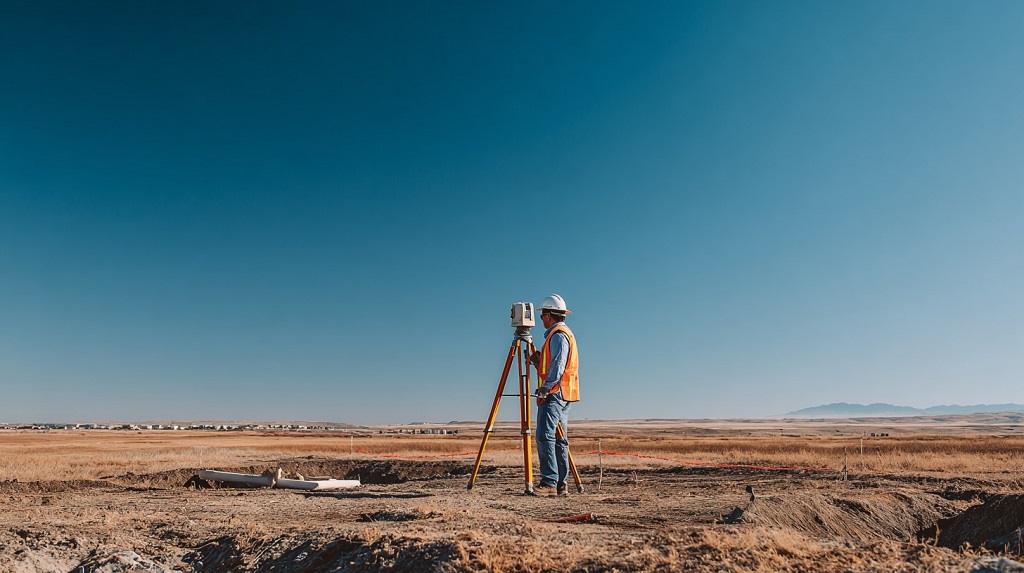Engineers shape the future of cities, technology, and everyday life across the United States. Many students choose these paths for strong salaries, job security, and clear growth.
Explore the most popular engineering jobs in 2025, see what they involve, and learn how much you can earn.
| Role | Average Salary (USD) | Entry-Level Salary (USD) | Top Salary (USD) | Main Focus |
|---|---|---|---|---|
| Architects | 94,806 | 60,000 – 70,000 | 140,000 – 170,000 | Building design, safety codes, aesthetics |
| Civil Engineers | 78,230 | 60,000 | 100,000+ | Infrastructure, public works, safety |
| Surveyors | 55,000 – 103,000 | 45,000 – 60,000 | 100,000+ | Land measurement, mapping, boundaries |
| Urban Planners | 66,286 | 47,833 | 73,819+ | Land use planning, zoning, community growth |
| Industrial Designers | 80,000 | 65,000 | 95,000+ | Product design, usability, style |
| Environmental Scientists | 89,000 | 60,000 | 110,000+ | Environmental health, pollution control |
| Geologists | 96,000 | 65,000 | 110,000 – 130,000 | Earth materials, surveys, resource analysis |
| Construction Managers | 104,000 | 75,000 | 130,000+ | Project management, scheduling, safety |
1. Architects

Architects design buildings, public facilities, and private spaces that influence daily life in cities and towns across the United States. Many choose this path for its balance of creativity, technical expertise, and strong job stability. Architects work with clients and builders to turn ideas into real structures that meet safety codes and reflect practical needs.
How Much Do Architects Make?
Architects in the United States earn an average annual salary of $94,806 as of July 2025. Entry-level positions typically start around $60,000 to $70,000 per year, depending on location and firm size.
Experienced professionals in leadership roles or specialized fields can earn upwards of $140,000 to $170,000 annually, especially in high-demand sectors like sustainable design or high-tech buildings.
What Do Architects Do?
Architects lead building projects from the first sketches to final construction. They prepare detailed drawings, choose materials, check building codes, and work closely with engineers and city officials.
Architects spend part of each day in meetings with clients and part focused on design work at the office. They also visit construction sites to ensure plans are followed correctly and to solve unexpected problems. Strong visual skills, clear communication, and knowledge of safety and zoning laws help architects succeed in this demanding role.
Also read: U.S. Cities With Best Air Quality
2. Civil Engineers

Civil engineers design, build, and maintain infrastructure projects such as roads, bridges, and water systems. They play a crucial role in ensuring the safety and functionality of public works across the United States.
How Much Do Civil Engineers Make?
As of July 2025, civil engineers in the United States earn an average annual salary of $78,238. Entry-level civil engineering positions typically start around $60,000, while experienced professionals can earn upwards of $100,000, depending on location and specialization.
In states like California and New York, salaries tend to be higher due to increased demand and cost of living.
What Do Civil Engineers Do?
Civil engineers are responsible for planning, designing, and overseeing construction projects. Their daily tasks include analyzing survey reports, preparing cost estimates, and ensuring compliance with safety regulations.
They collaborate with architects, contractors, and government officials to complete projects efficiently and safely.
3. Surveyors

Surveyors measure and map land boundaries, playing a vital role in construction, engineering, and land development projects. Their work ensures accurate property lines and aids in planning and design.
How Much Do Surveyors Make?
In 2025, surveyors in the United States have an average annual salary ranging from $55,000 to $103,000. Entry-level surveyors can expect to earn between $45,000 and $60,000, while those with extensive experience or in senior roles may earn over $100,000. Salaries vary based on factors such as location, experience, and specialization.
What Do Surveyors Do?
Surveyors conduct field studies to gather data about specific sites, develop maps and plots based on collected data, and verify the accuracy of survey information. They calculate site measurements, areas, volumes, or elevations, and write descriptions of property boundary surveys for legal documents.
4. Urban Planners

Urban planners develop plans and programs for land use in urban areas, helping communities manage growth and change. They aim to create sustainable, functional, and attractive environments.
How Much Do Urban Planners Make?
As of July 2025, urban and regional planners in the United States earn an average annual salary of approximately $66,286. Salaries can range from around $47,833 for entry-level positions to over $73,819 for experienced professionals. Factors influencing salary include location, education, and experience.
What Do Urban Planners Do?
Urban planners develop comprehensive plans and programs for land use, considering factors like population growth, environmental sustainability, and community needs. They work with public officials, developers, and the community to address issues such as zoning, transportation, and housing.
5. Industrial Designers

Industrial designers create products that combine function, aesthetics, and user needs. They work on items such as electronics, furniture, appliances, and vehicles. Designers aim to make products more useful, attractive, and comfortable.
How Much Do Industrial Designers Make
Industrial designers in the United States earn an average annual salary of about 80,000 dollars. Entry-level designers usually start near 65,000 dollars. With experience and specialized skills, many reach 95,000 dollars or more. Designers working in large cities or for top consumer brands often earn higher pay.
What Do Industrial Designers Do
Industrial designers develop concepts, create models, and test products before mass production. Daily tasks include sketching ideas, using 3D software, and meeting with engineers or marketing teams. Designers focus on balancing cost, usability, and style to create successful products.
6. Environmental Scientists

Environmental scientists work to protect human health and natural resources. They study air, water, and soil to find problems and recommend solutions. Many help design policies or cleanup plans for polluted areas.
How Much Do Environmental Scientists Make
Environmental scientists in the United States earn an average annual salary of about 89,000 dollars. Entry-level positions often start around 60,000 dollars. Senior scientists or those in leadership roles can earn 110,000 dollars or more. Salaries depend on experience, region, and type of employer.
What Do Environmental Scientists Do
Environmental scientists collect data, perform field tests, and analyze samples to monitor environmental health. They prepare reports, advise companies or government agencies, and help design strategies to reduce pollution. Many also educate communities on environmental risks and safety practices.
7. Geologists

Geologists study the Earth’s materials, processes, and history. Their work supports industries like mining, oil, construction, and environmental management.
How Much Do Geologists Make
Geologists in the United States earn an average annual salary of about $96,000. New geologists often start near 65,000 dollars. With experience, many earn between 110,000 and 130,000 dollars. Those working in energy or specialized consulting usually earn the highest salaries.
What Do Geologists Do
Geologists analyze rock samples, conduct surveys, and prepare maps to understand land structures and natural resources. Daily work may include field studies, lab analysis, and data modeling. Their findings guide drilling, construction, and hazard prevention plans.
8. Construction Managers

Construction managers plan and supervise building projects, making sure work stays on schedule and within budget. They coordinate teams and handle all project details.
How Much Do Construction Managers Make
Construction managers in the United States earn an average annual salary of about 104,000 dollars. Entry-level managers often start around 75,000 dollars. Experienced managers overseeing large or complex projects can earn 130,000 dollars or more.
What Do Construction Managers Do
Construction managers organize schedules, hire workers, and oversee daily site operations. They handle budgeting, resolve issues on-site, and ensure safety standards are met. Managers work closely with architects, engineers, and inspectors to deliver projects successfully.
FAQs
What Is the Best University for Architecture in The Us?
MIT and Harvard University offer the strongest programs for architecture with top design labs and professional networks.
Which School Is Best for Civil Engineering?
University of California, Berkeley, and Georgia Tech rank highest for civil engineering, known for strong research and practical training.
Which College Is Best for Industrial Design?
Rhode Island School of Design and ArtCenter College of Design are top choices for advanced product design and creative methods.
Do Geologists Need a License?
Most states require a Professional Geologist license for advanced roles, especially in consulting and public safety work.
Is Certification Needed for Construction Managers?
Many managers earn a Certified Construction Manager (CCM) credential to show expertise and improve job prospects.
Can Architects Work Fully Remote?
Design tasks can be remote, but site visits and client meetings often need in-person work, so full remote setups are rare.
Bottom Line
Engineering careers attract many students and professionals in the United States because they offer strong pay, clear growth, and real impact on daily life. Roles in engineering like architect, civil engineer, surveyor, and industrial designer, give people a chance to shape cities, protect the environment, and create useful products.
Salary levels reflect the skill and responsibility each job demands, with steady demand across the country. Choosing a path in one of these fields can lead to a stable, rewarding future and the chance to leave a lasting mark on communities and industries.
Read Next: US Territories Outside of the United States

